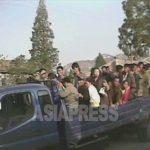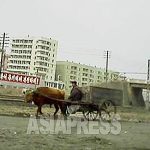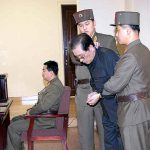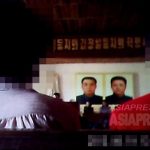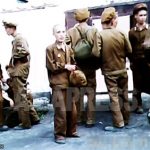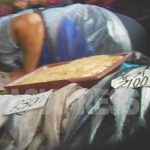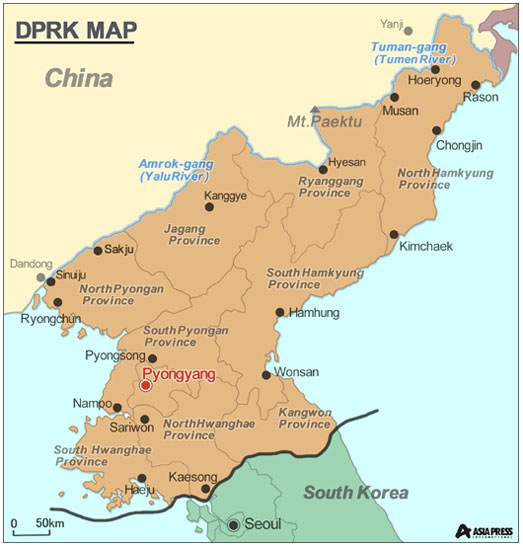
◆ A breakdown of what’s being sold in N. Korean markets
A list of prices of manufactured goods collected in mid-April 2022.
“City A”: A city in North Hamyung Province
| Item | Origin | Price (Per Item) |
| Washing Soup | Sinuiju | 4,000 |
| Laundry Soup | Sinuiju | 3,000 |
| High-quality Shampoo | Pyongsong | 7,000 |
| Toothpaste | Sinuiju | 1,500 |
| Toothbrush | Sinuiju | 700 |
| Socks | Pyongsong* | 1,200 |
| Shoes | Sinuiju | 18,000 |
| Children’s Clothing | Pyongsong* | 35,000 |
| High-quality Underwear | Pyongsong* | 15,000 |
| High-quality Jumper | Pyongsong* | 135,000 |
Hyesan, Yanggang Province
| Item | Origin | Price (Per Item) |
| Washing Soup | Pyongsong | 5,200 |
| Laundry Soup | Pyongsong | 3,700 |
| High-quality Shampoo | Pyongsong | 12,000 |
| Toothpaste | Pyongsong | 1,800 |
| Toothbrush | Pyongsong | 800 |
| Socks | Pyongsong* | 1,500 |
| Shoes | Sinuiju | 21,000 |
| Children’s Clothing | Pyongsong* | 42,000 |
| High-quality Underwear | Pyongsong* | 22,000 |
| High-quality Jumper | Pyongsong* | 150,000 |
※ 1,000 KPW equals around 0.156USD
※ Sinuiju is the biggest center of trade with China and boasts cosmetics and shoe factories run by the state. Pyongsong is located directly north of Pyongyang and is a major logistics center linking together all areas of the country. The city has long been a center for clothes manufacturing and wholesalers.
※ Origins denoted with a “*” refer to items that were manufactured by individuals through contracts with small-scale businesses. The shoes referenced in the surveys are made of cloth and are the cheapest and most commonly used by people in the country.
◆ Domestically manufactured goods are low in quality
After North Korea shut down its border with China in late January 2020 to prevent the spread of COVID-19, imports into the country fell dramatically, leading to a sudden disappearance of Chinese goods from markets. Domestically made products began being sold in their place, but reporting partners have unanimously told ASIAPRESS that these products are “generally poor quality and lack diversity.”
There are several major production centers for clothing in Pyongsong, which include state-run factories. There are also private companies who make clothing through contracts with small-scale businesses, an arrangement generally termed gagong.
In the past several years, the Kim Jong-un regime has exerted more control over private economic activities, which has negatively impacted businesses involved in logistics, fishing, food and clothing production, and even small-scale coal production. These businesses pay to work under the auspices of enterprises or state agencies – an arrangement in North Korea terms giji; essentially, they are working under-the-table.
While private economic activities have now been heavily restricted by the state, it appears that private businesses involved in clothing production in Pyongsong are still surviving. Their products, which include imitations of Chinese clothing such as high-quality jumpers, are reportedly of good quality. Products produced by state-run factories are cheap but of poor quality, while those created by these private companies are expensive but of good quality.
In general, Hyesan is more expensive than “City A,” perhaps because of costs related to transporting the goods. Before the COVID-19 pandemic, Hyesan was a major center of trade with China, with wholesalers selling large amounts of Chinese goods to cities throughout the country. Following the border’s closure, however, the city has become known for its expensive transportation costs.
One Hyesan reporting partner told ASIAPRESS that, “There’s not much being sold in the markets now except for agricultural goods and food. That’s because nobody has any money.” North Korea’s excessive efforts to prevent the spread of COVID-19 has led to an economic downturn, which has led to falls in the amount of cash people have on hand. (Continued in the next installment)
※ ASIAPRESS communicates with its reporting partners through Chinese cell phones smuggled into North Korea.
- <Inside N. Korea> The Kim Jong-un regime orders city dwellers to the farms to make up for lost time (2022-06-25)
- <Breaking News> Hyesan City Lockdown Completely Lifted: Market and Workplaces Reopened, Citizens Soon to be Mobilized for Farm Work (2022-06-14)
- <Inside N. Korea>Farmers face very difficult conditions with food shortages causing rampant starvation…Labor shortages mean many farm fields remain unweeded and unplanted…Crop yields are down because of recent droughts (2022-06-14)
- A glimpse into North Korea’s COVID-19 situation (2) Urban lockdowns are slowly being lifted, and people in areas where lockdowns have ended are being sent to farms (2022-06-14)
- A glimpse into North Korea’s COVID-19 situation (1) The elderly and young are dying…The authorities determine infections using just temperature checks…Most people are recovering from their symptoms (2022-06-13)
